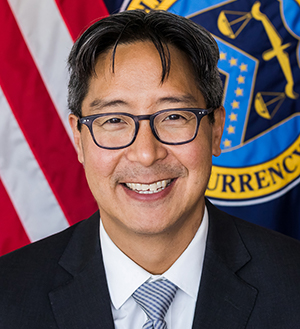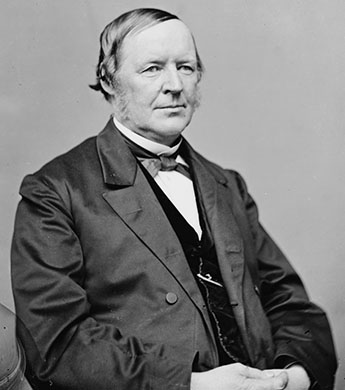
The OCC charters, regulates, and supervises all national banks and federal savings associations as well as federal branches and agencies of foreign banks. The OCC is an independent bureau of the U.S. Department of the Treasury.
To ensure that national banks and federal savings associations operate in a safe and sound manner, provide fair access to financial services, treat customers fairly, and comply with applicable laws and regulations.
The OCC has steadfastly served the American public for 160 years by ensuring the federal banking system is safe and sound, provides fair access to financial services, treats customers fairly, and complies with applicable laws and regulations.

Michael J. Hsu became Acting Comptroller of the Currency on May 10, 2021. The Comptroller of the Currency is the administrator of the federal banking system and head of the OCC.

The people who lead the OCC are experienced professionals with diverse backgrounds in disciplines necessary to advance the agency's mission and vision. They are experts in bank examination, law, risk management, economics, finance and accounting, organizational management and governance, human resources, communications, and technology. They collaborate to help ensure the safety and soundness of our federal banking system and to help make the OCC one of the best places to work in the federal government.

The OCC supervises national banks, federal savings associations, and federal branches and associations of foreign banks.
These assets, held by OCC-regulated institutions, compose 66 percent of all U.S. commercial banking assets.
The OCC's operating and capital budget is funded primarily by assessments, fees paid by banks, interest received on investments, and other income.
President Abraham Lincoln recognized that the United States' fragmented banking and monetary system needed tighter structure and order. On February 25, 1863, President Lincoln signed the National Currency Act into law, creating the Office of the Comptroller of the Currency and charging it with responsibility for organizing and administering a system of nationally chartered banks and a uniform national currency.

President of the Bank of Indiana, Hugh McCulloch had come to Washington to fight against the national banking legislation that had been signed by President Lincoln in February 1863. Ironically, he ultimately became its champion and proved to be an industrious, able administrator as the first Comptroller of the Currency. He went on to serve two terms as Secretary of the Treasury.